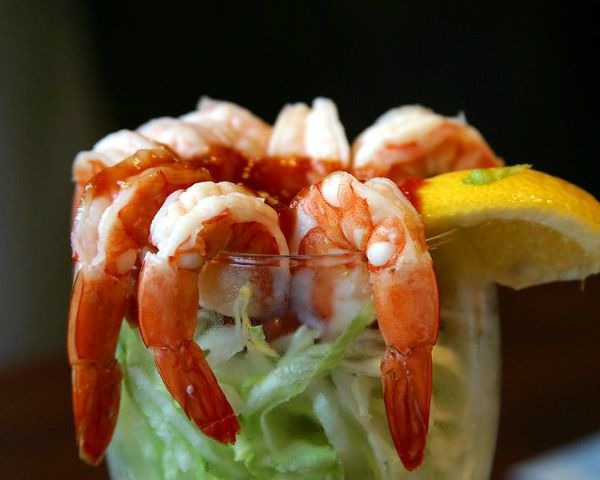Do You Know What's Really In Your Shrimp Cocktail?
As the holidays are right around the corner, there's one party appetizer that makes an appearance at every party: cocktail shrimp. The shrimp ring may be a crowd-pleaser, but it's fairly likely that you aren't getting what you pay for when you buy shrimp. Oceana recently released a study that found that 30 percent of 143 shrimp products in 111 grocery stores and restaurants around the country are mislabeled with false information about where and how the shrimp were caught or farmed, and the species of shrimp. In several grocery stores, "cleaner shrimp" (a tiny variety of shrimp that clean parasites, and are usually found in aquariums), were being sold as wild shrimp.
"We really know very little about the shrimp we eat, and the information we do get may not be trustworthy," said Dr. Kimberly Warner, the author of the study. "Consumers have a right to know more about the shrimp they purchase in order to make more responsible choices."
Some of the incorrect claims in many supermarkets include farmed shrimp being sold as wild shrimp, pet shrimp varieties being sold as food, and 40 percent of the shrimp varieties seen were mislabeled as different species. Oceana has said that is working to further expose and eliminate seafood fraud.
For the latest happenings in the food and drink world, visit our Food News page.
Joanna Fantozzi is an Associate Editor with The Daily Meal. Follow her on Twitter @JoannaFantozzi
